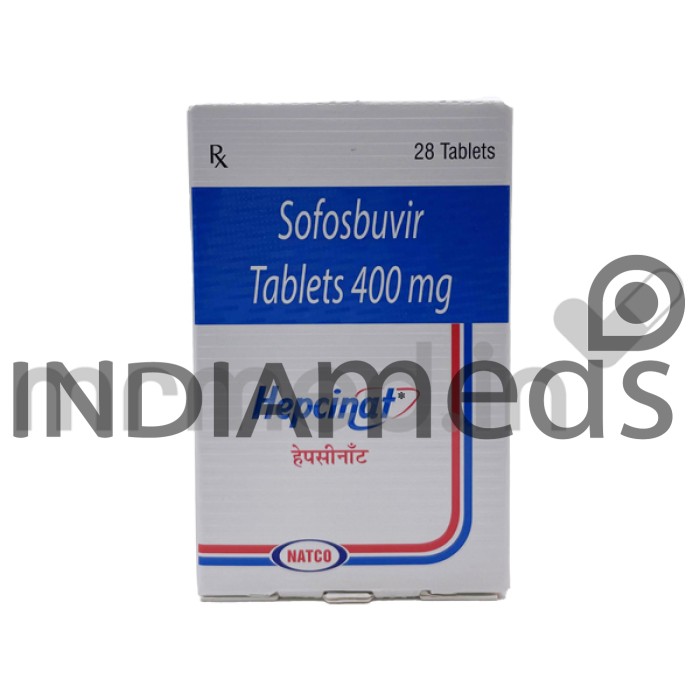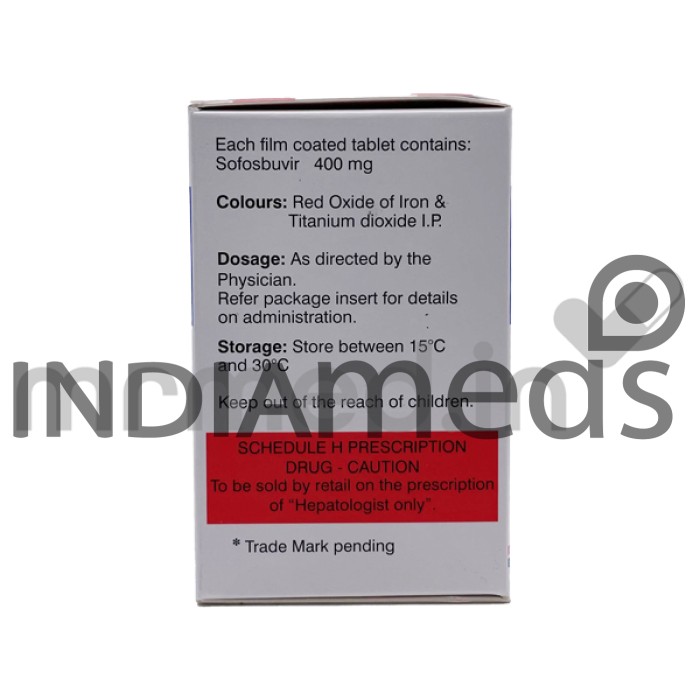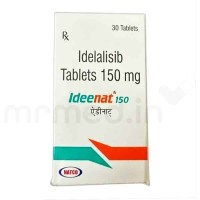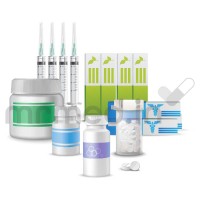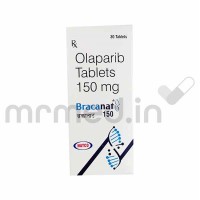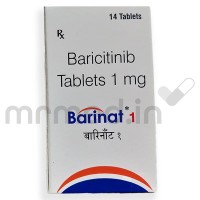Hepcinat 400mg Tablet contains the active component as Sofosbuvir. It is a direct-acting antiviral medication used to treat hepatitis C virus (HCV) infection. This medication is often combined with other antiviral drugs to form a regimen that can effectively eliminate HCV from the body. Hepcinat 400mg Tablet has significantly shortened the duration of HCV treatment compared to older therapies. It is effective against multiple genotypes of the hepatitis C virus. This broad-spectrum activity makes it a versatile treatment option that can be used for a wide range of patients infected with different HCV genotypes.
Patients have generally well-tolerated with this medication, with few serious side effects reported. Hepcinat 400mg Tablet should not be used in individuals with known hypersensitivity or allergic reactions to it or its components. This medication is primarily eliminated through the kidneys. Therefore, individuals with severe renal impairment may require dosage adjustments. It is not approved for use in children under the age of 18.
Therapeutic Effects of Hepcinat 400mg Tablet
Pregnancy
The safety of Hepcinat 400mg Tablet use during pregnancy has not been established. If you are pregnant or planning to become pregnant, discussing the potential risks and benefits with your healthcare professional is essential.
Breast Feeding
Limited data are available on the safety of Hepcinat 400mg Tablet during breastfeeding, and it is important to discuss the potential risks and benefits with a healthcare professional.
Lungs
Suppose you have a pre-existing lung condition or are concerned about the safety of the Hepcinat 400mg Tablet in your lungs. Consulting with your healthcare provider for personalized advice is recommended in that case.
Liver
If you have a liver condition or are concerned about the safety of Hepcinat 400mg Tablet, it is recommended to consult your healthcare provider for personalized advice.
Alcohol
It is generally advisable to avoid consuming alcohol while taking Hepcinat 400mg Tablet. Alcohol can impair the body's immune system, making it less effective in fighting infections.
Driving
After using Hepcinat 400mg Tablet, people may experience side effects, including dizziness, drowsiness, or fatigue. In that case, avoid driving or operating heavy machinery.
Serious:
- Allergic reactions that affect skin and breathing
- Hepatitis B infection reactivation
- Bradycardia (slow heartbeat)
Common:
- Fatigue
- Headache
- Nausea
- Insomnia
- Diarrhea
- Itching
- Decreased appetite
- Rash or skin reactions
No, Hepcinat 400mg Tablet is not recommended as a monotherapy for hepatitis C. It is typically used in combination with other antiviral medications. The specific combination therapy will depend on factors such as the HCV genotype, previous treatment history, and the presence of liver cirrhosis.
Hepcinat 400mg Tablet primarily treats individuals already infected with hepatitis C. While it can cure the infection and reduce the viral load, it does not provide direct protection against acquiring hepatitis C or prevent transmission to others. Prevention of hepatitis C transmission involves practicing safe behaviors such as using barrier methods during sexual activity, avoiding sharing needles or other drug paraphernalia, and taking precautions to prevent blood-to-blood contact.
Yes, Hepcinat 400mg Tablet can be used in patients with liver cirrhosis. It has shown efficacy and safety in patients with compensated and decompensated liver cirrhosis. However, careful monitoring and individualized treatment plans may be required for patients with advanced liver disease.
Yes, Hepcinat 400mg Tablet can be used in elderly patients. Age alone is not a contraindication for its use. However, elderly patients may have a higher likelihood of comorbidities and may be taking multiple medications, which can increase the risk of drug interactions.
Yes, Hepcinat 400mg Tablet can be used in patients who are co-infected with both hepatitis C virus (HCV) and HIV. However, the choice may depend on the specific antiretroviral therapy used to treat HIV. Some antiretroviral medications can interact with it, potentially affecting the levels of both drugs in the body. It is crucial to work closely with healthcare providers to cure HCV and HIV co-infection to ensure optimal treatment outcomes.
Common side effects may include fatigue, headache, nausea, insomnia, diarrhea, itching, decreased appetite, and rash or skin reactions. Serious side effects are rare, including hepatitis B reactivation in co-infected individuals, serious bradycardia when combined with Amiodarone, and allergic reactions.
Molecule name: Sofosbuvir | Therapeutic class: Antiviral Agent |
Pharmacological class: Nucleotide analog inhibitor | Indications: Hepatitis C virus (HCV) infection |


